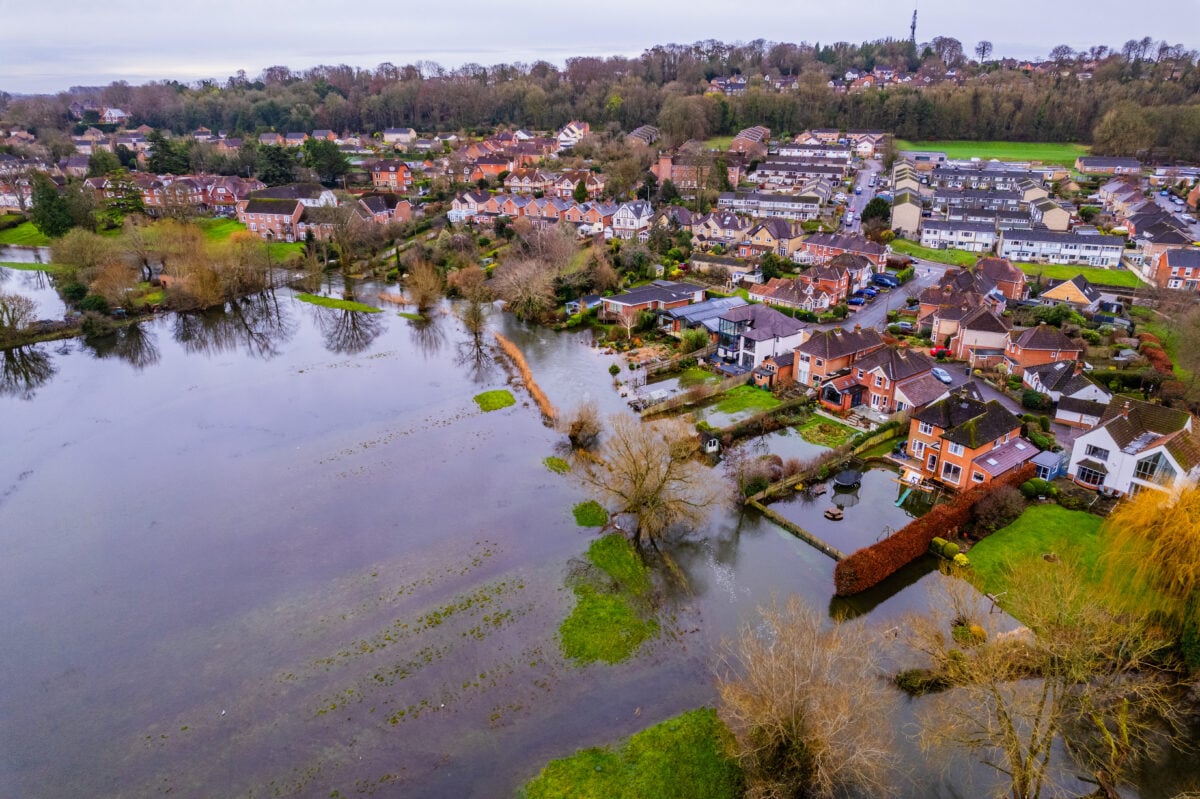A new study has found that the relentless rain experienced by the UK, Ireland, and Western Europe during the autumn and winter of 2023 to 2024 was exacerbated by the climate crisis.
Read more: Avocado Production Set For Heavy Decline Due To Climate Crisis, Report Finds
The analysis, which was carried out by World Weather Attribution (WWA) – an organization specializing in linking extreme weather events with warming global temperatures – found that last winter’s rain and storms were 10 times more likely to happen and 20 percent wetter when they did because of the ongoing climate crisis.
Scientists from the UK, Ireland, the Netherlands, Sweden, and Germany collaborated to assess how human-caused climate change influenced average storm severity and precipitation between October 2023 and March 2024.
The season, which was one of the wettest on record for the UK and the third-wettest on record for Ireland, saw successive floods cause crop failures, damaged homes, transport disruptions, and power outages, along with injuries and several deaths. (The heavy rain also made things even worse for farmed animals like sheeps*, pigs, and chickens.)
The world has warmed 1.2C so far since pre-industrial temperatures, resulting in the extreme weather events experienced over the winter in the UK. (And countless others around the world.)
The new analysis suggests that at this current level of warming, stormy days and strong winds such as these will occur around every four years, with extraordinarily heavy precipitation occurring every five. On stormy days, accompanying average precipitation is expected to be 30 percent more intense than it was at pre-industrial temperatures.
If global temperatures reach 2C, such severe wet weather will occur around every three years.
Read more: New Study Names Biodiversity Loss As The Main Driver Of Infectious Disease Outbreaks
‘We know the solutions’

Hundreds of leading climate scientists now predict that the climate crisis will result in global heating of at least 2.5C by the end of the century, with some anticipating more than 3C. In February, Europe’s Copernicus Climate Change Service (C3S) confirmed that global warming had exceeded 1.5C across an entire year for the first time.
In late 2021, the UK government approved plans for more than 5,000 new homes to be built on floodplains in response to the housing crisis, despite warnings about the risk of flooding. Furthermore, experts warn that simply building new houses does not address either housing inequality or the enormous environmental impact of the construction industry.
Meanwhile, hundreds of crucial flood defenses in affected areas remain in poor condition, while the UK’s High Court recently ruled that the Conservative government’s climate plan is so insufficient as to be “unlawful,” and requires immediate revision.
Combined with the cost-of-living crisis, the new analysis by WWA suggests that extreme weather events have had “cascading impacts on socioeconomic and psychosocial health.” It also notes that “comprehensive flood risk management is required in the UK and Ireland,” encompassing legislation, planning, and “substantial funding.”
Speaking to the Guardian, WWA co-founder and Imperial College London climate scientist Dr Friederike Otto noted that the climate crisis is already making people’s lives worse.
“Thankfully, we know the solutions,” he added. “Replace oil, gas, and coal with cleaner, cheaper renewable sources of energy; insulate homes, and restore nature. All this will make life cheaper and better for all, not more expensive.”
*While the English language typically refers to multiple sheep as “sheep,” we use “sheeps” to emphasize their individuality.
Read more: Switzerland’s Inaction On Climate Crisis Breaches Human Rights, Says Landmark Court Case






